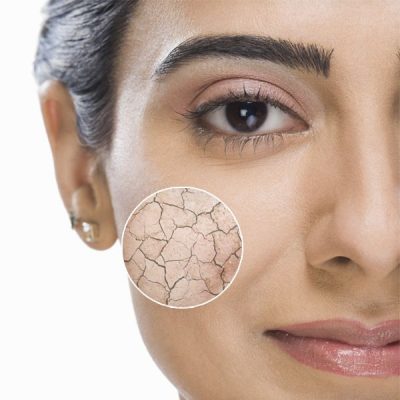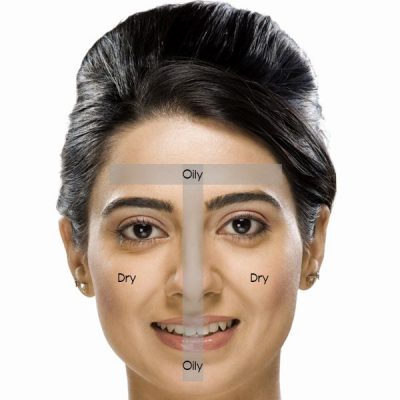Understanding your skin type and its needs can help unlock a huge mystery if you struggle to manage your skin. Here, you’ll learn to identify your skin type, and we will take you a step closer to finding your ideal personal skincare regimen.
Normal skin is typically a skin type that is neither oily nor very dry. People with normal skin have rare acne occurrences than those with oily skin as their sebaceous glands usually maintain an optimal level of secretion.
Normal skin has small pores, and a smooth texture & the skin makes enough sebum to hydrate on its own. People with normal skin usually have a glow on their skin, which indicates good circulation in the blood vessels of the dermis.
However, Normal skin does require maintenance & need proper cleansing and moisturizing.
If you have dry skin, drinking more water can solve most of your problems. Our body tends to divertwater from less needed areas to fuel the vitalorgans & body functions. On the other hand, skin can afford to sustain itself without water compared to the organs such as the brain, kidneys, etc. Hence simply hydrating yourself can help you immensely.


Oily skin type is found in people with overactive sebaceous glands, making an excessive amount of sebum. This problem is also known as seborrhoea. Individuals with an oily skin type are more prone to certain skin defects and skin issues, mainly acne.
Like most skin types, oily skin is significantly associated to genetics. However other factors such as hormonal changes during pregnancy, anxiety, certain medications, diet may contribute to oily skin. This skin type is more associated with men than women and is more common during young adulthood.
Individuals with oily skin types should clean their face with a gentle cleanser and use skin care products that won’t clog the pores. Excess sebum production can also be treated with acne medications prescribed by a dermatologist.
Combination skin is one of the most common skin types and is identified by a mix of dry skin and oily skin patches in different areas of the face.
People with combination skin type have oily skin in their T Zone. This means they have an excess sebum concentration around the forehead, nose, and chin & dry skin patch at the cheeks, mouth, and eyes.
Individuals with combination skin types require different skincare regimes that support their skin areas and ailments associated with them.

Unlike skin type, the skin condition can vary significantly according to your lifestyle. The numerous external and internal factors that determine the skin condition include weather and exposure to pollution, medication, stress& genetics. These factors influence the degree of sebum production, sweat secretion and natural moisturizing elements that your skin produces daily.
Skincare products should be selected to suit skin type and address skin ailments. Skincare professionals determine an Individual’s skin ailment by evaluating the factors mentioned above.
All rights reserved, McW HEALTHCARE PVT. LIMITED © Copyright 2021